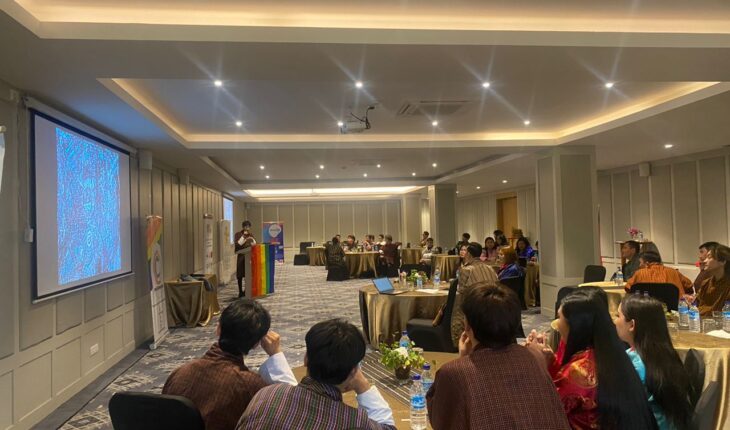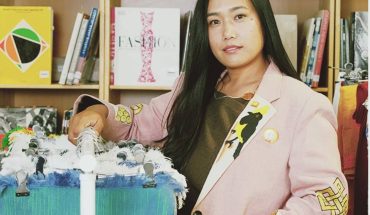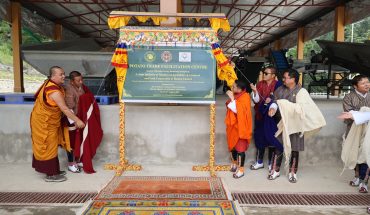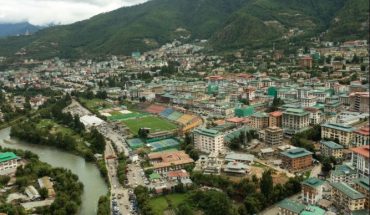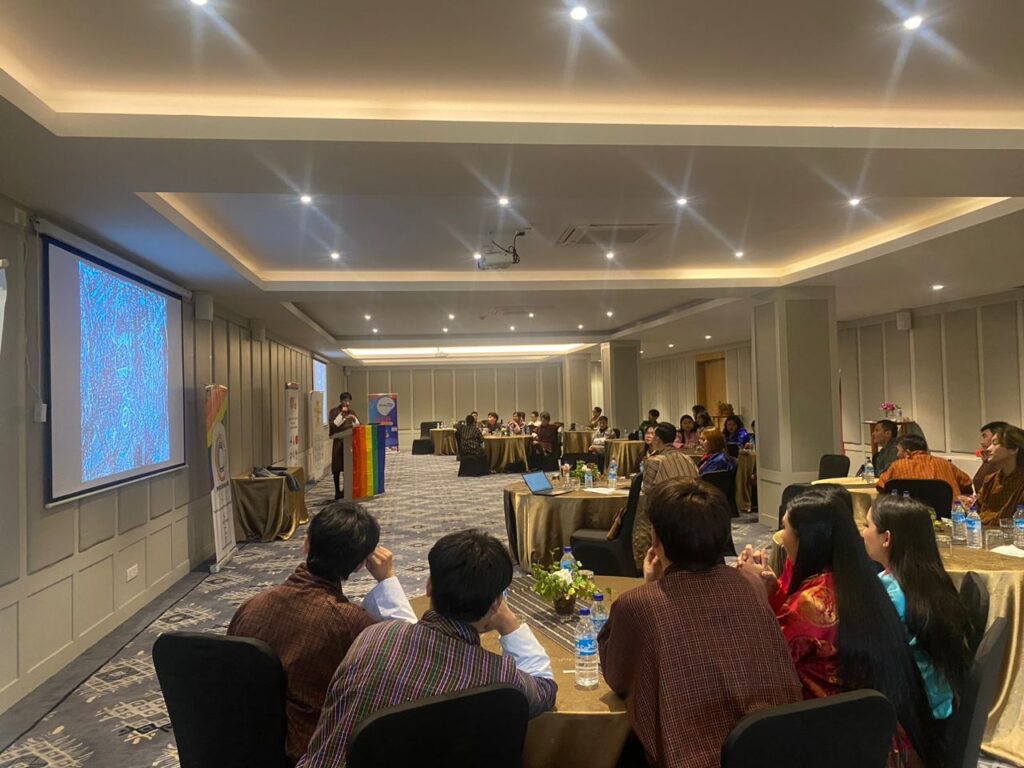
LGBTQ communities still face discrimination in various forms
NGAWANG JAMPHEL
Thimphu
In 2021, Bhutan made global headlines for a progressive step by decriminalizing same-sex relationships by amending Sections 213 and 214 of the Penal Code.
It was a moment of celebration for the LGBT+ (lesbian, gay, bisexual, transgender, and others) community in Bhutan. However, for many LGBT+ professionals, real life still brings silent struggles, social judgment, and lack of support.
At the center of LGBT+ advocacy in Bhutan is Pride Bhutan, the country’s main support group for the community. But even Pride Bhutan is not officially registered, which limits its ability to raise funds, organize large programs, or work with the government.
Tenzin Gyeltshen, Executive Director of Pride Bhutan, said, “There’s still a fear of being judged. Many LGBT+ individuals hide their identity at work. This affects their confidence, mental health, and career growth. Legal reform was a start, but there’s still a long journey ahead.”
While Bhutan no longer considers same-sex relationships among consenting adults a crime, there are still no laws that protect people from discrimination based on sexual orientation or gender identity. This means LGBT+ people are still vulnerable in workplaces, schools, and public spaces.
“There’s this idea that now everything is okay just because it’s no longer illegal,” said a gay man working in Thimphu. “But people’s attitudes don’t change overnight. I’m still scared to come out at work.”
Many LGBT+ professionals say they face subtle discrimination, like being left out of conversations, hearing inappropriate jokes, or being judged more harshly than others.
A transgender woman working in the public sector shared her experience: “Even when I do well at work, people make fun of how I dress or ask unnecessary questions. It’s stressful every day.”
One of the biggest issues is the lack of legal protection. Bhutan does not yet have laws that clearly say it’s wrong to discriminate against LGBT+ people in jobs, hospitals, schools, or housing.
Tenzin stressed the need for change. “We don’t just want recognition, we want protection. A clear anti-discrimination law would show that LGBT+ Bhutanese deserve equal rights everywhere—from classrooms to offices.”
Accessing basic services is still difficult for many. Transgender individuals often struggle to get proper healthcare, ID cards that match their gender, and safe places to live.
A non-binary youth from a rural village said, “Back home, there’s no one I can talk to. I moved to Thimphu for safety, but even here, I lie about who I am just to rent a place.”
Mental health is another area of concern. Years of silence, cultural expectations, and religious beliefs can lead to deep shame and emotional stress.
“You grow up thinking something is wrong with you,” said a lesbian woman working in education. “Even now, I watch everything I say and do. It’s tiring. We should be able to love freely.”
In conservative workplaces or rural areas, many LGBT+ people feel invisible. Some say they have never seen an openly LGBT+ leader or coworker.
Tenzin and Pride Bhutan are working for a future where being different is respected, not punished. “A truly inclusive workplace is one where everyone feels safe to be themselves without fear,” he said.
This includes creating clear policies to prevent discrimination, offering staff training on inclusion, and encouraging leaders to reflect the diversity of society.
A queer professional from the private sector added, “We shouldn’t have to work twice as hard to prove we belong. We want to be judged by our work, not by our identity.”
Tenzin also pointed out the powerful role of the media. “Stories in the media should show LGBT+ people as capable and human—not just as victims or stereotypes.”
One LGBT+ business owner agreed: “Most stories are either tragic or shocking. Why not show us as teachers, doctors, or entrepreneurs—just living our lives?”
Another added, “When the media shares our stories with respect, it gives hope to others who are still hiding.”
Education is another key area for change. Tenzin believes inclusive education starting from primary school can reduce discrimination in the long term.
“Even educated people still believe wrong things,” he said. “If children grow up learning that it’s okay to be different, society will be more accepting.”
A university student said that school was one of the hardest places growing up. “No one talked about LGBT+ people. When I was bullied, the teachers ignored it. I thought I was the only one like me.”
When asked what change would make the biggest difference, Tenzin answered: “A shift in public attitude—from tolerance to true acceptance.”
He explained that it’s not enough to just “allow” LGBT+ people to exist, and that real inclusion means understanding, supporting, and valuing them.
Pride Bhutan is calling for more public awareness campaigns and for LGBT+ issues to be included in national plans and policies. “When leaders stay silent, the stigma continues,” said Tenzin.
One of their most important requests is for the government to officially register Pride Bhutan. “We’re trying to support a vulnerable group, but without legal status, it’s like building a house with no foundation,” Tenzin said.
Despite the difficulties, Bhutan’s LGBT+ community remains strong. From artists and civil servants to small business owners and social workers, they are slowly changing mindsets and shaping a more inclusive society.
As one young queer person put it: “We’re not asking for special treatment. We just want to live, love, and work like anyone else. We belong here too.”

